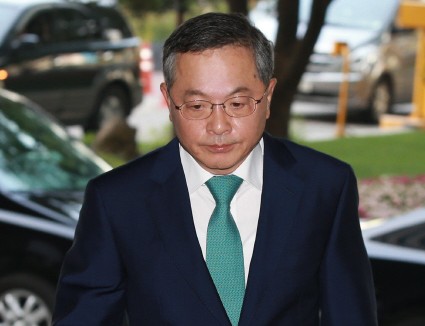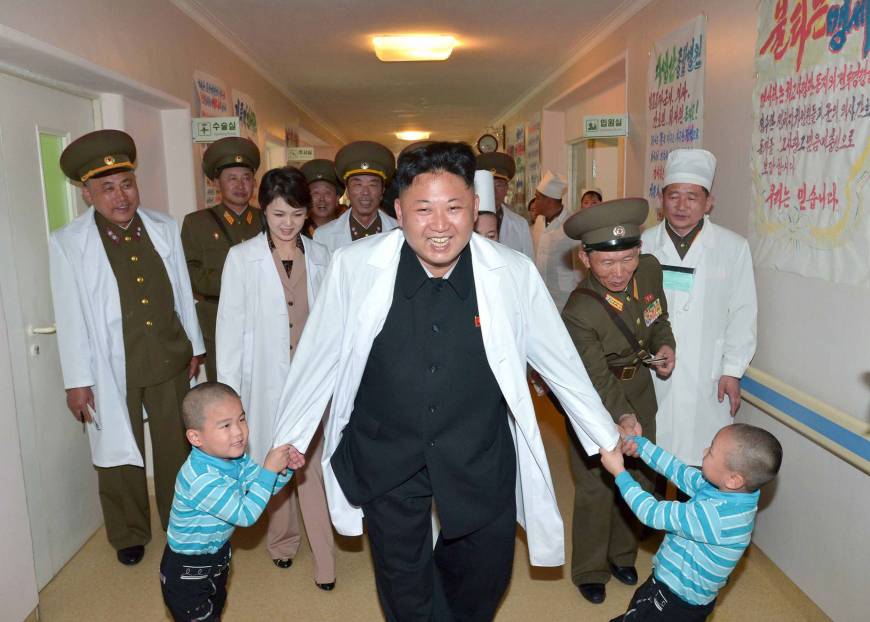South Korean President Park Geun-hye nominated a new prime minister to replace Chung Hong-won, who recently resigned amid backlash following the poor handling of the ferry disaster.
Ahn Dai-hee, 59, a former prosector and Supreme Court justice who has been touted as reform-minded, was named to replace Chung, who will remain in the job until the parliamentary confirmation hearing for Ahn.
“I have lived all my life to eradicate irregularities and corruption … since I was a junior prosecutor,” Ahn said, according to Yonhap News Agency. “I take the nomination as an order to stamp out evils accumulated over decades and push for reform.”
Ahn must first pass next month’s confirmation hearing—a prospect that got shakier in the last few days, as opposition leaders criticized him for making about $1.5 million over six months last year as an attorney. The news prompted suspicions that he benefited from his status as a former Supreme Court justice.
“I think the nomination for prime minister should be reconsidered,” Rep. Kim Han-gil, a co-leader of the main opposition New Politics Alliance for Democracy, told Yonhap on May 25.
Here is a list of five facts you should know about Ahn Dae-hee:
1. In 2003, then-prosecutor Ahn led a high-profile investigation of political parties that collected illegal funds ahead of the 2002 presidential election. The probe revealed that Grand National Party, the predecessor of the currently ruling Saenuri Party, had taken bribes from businesses to fund the campaign. The investigation earned Ahn the nickname, “the people’s prosecutor” and drew heavy criticism of the Grand National Party, which later reformed as the Saenuri Party.
2. His status as “the people’s prosecutor” prompted a legion of South Koreans to create an “Ahn Dae-hee fan club.” The fan club chairman Jeong Seong-keun, a farmer in Yeoju, said he created the group because he felt it was important to show support for “someone who works for the people.”
3. Ahn joined the party he once scrutinized as a prosecutor. He became head of the Saenuri Party’s political reform committee while it was struggling to regain public trust ahead of the president election in 2008, helping it return to power with the election of Lee Myung-bak. His role in reforming Saenuri Party once again helped Park Geun-hye become president last year.
4. Despite his qualifications, Ahn’s role will be limited as prime minister unless the president expands his role. Power is concentrated heavily on the president in South Korea, which analysts say leaves the prime minister with a more ceremonial role. During her presidential campaign, Park pledged to give the prime minster greater power, but former prime minister Chung Hong-won’s role proved no different than his predecessors. Will it be different this time around?
5. Ahn’s nomination hints at a Cabinet reshuffle in South Korea. Park plans to reorganize the Cabinet after Ahn takes office, according to her spokesman. Ministers criticized in connection with the ferry disaster and others who have been accused of corruption are expected to be replaced. South Korean presidents have traditionally revamped the Cabinet to regain public trust and show they’ve acknowledged their mistakes. Park also sacked the spy chief Nam Jae-joon and the national security adviser Kim Jang-soo.







